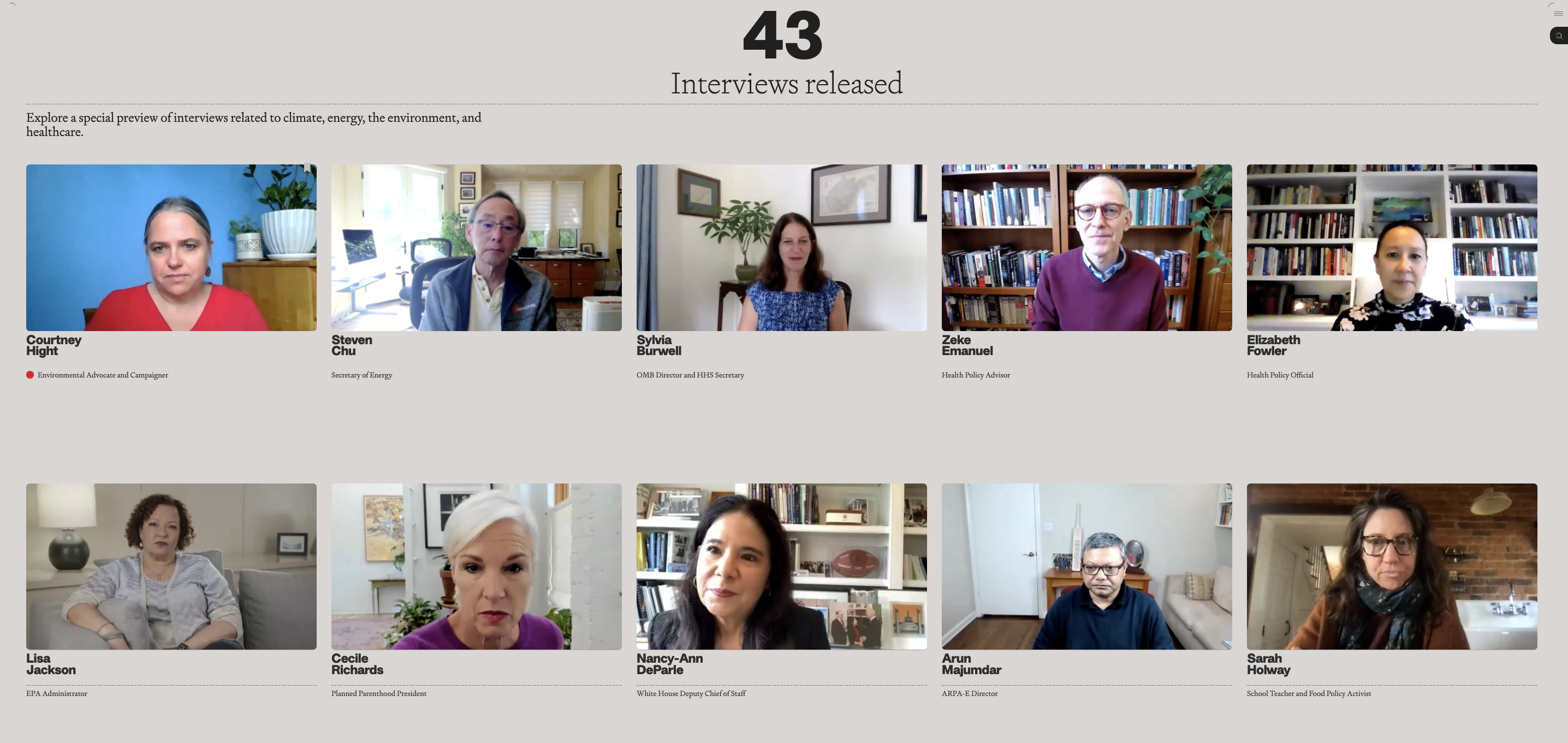░▒▓█░▒▓█░▒▓█░▒▓█░▒▓█░▒▓█░▒▓█░▒▓█░▒▓█░▒▓█░▒▓█░▒▓█░▒▓█░▒▓█░▒▓█░▒▓█░▒▓█░▒▓█░▒░▒▓█░▒▓█░▒▓█░▒▓█░▒▓█░▒▓█░▒▓█░▒▓█░▒▓█░▒▓█░▒▓█░▒▓█░▒▓█░▒▓█░▒▓█░▒▓█░▒▓█░▒▓█░▒░▒▓█░▒▓█░▒▓█░▒▓█░▒▓█░▒▓█░▒▓█░▒▓█░▒▓█░▒▓█░▒▓█░▒▓█░▒▓█░▒▓█░▒▓█░▒▓█░▒▓█░▒▓█░▒░▒▓█░▒▓█░▒▓█░▒▓█░▒
▒▓█░▒▓█░▒▓▓█░▒▓█░▒▓█░▒▓█░▒▓█░▒▓█░▒▓█░▒▓█░▒▓█░▒▓█░▒▓█░▒▓█░▒▓█░▒▓█░▒▒▓█░▒▓█░▒▓█░▒▓█░▒▓▓█░▒▓█░▒▓█░▒▓█░▒▓█░▒▓█░▒▓█░▒▓█░▒▓█░▒▓█░▒▓█░▒▓█░▒▓█░▒▓█░▒▒▓█░▒▓█░▒▓█░▒▓█░▒▓▓█░▒▓█░▒▓█░▒▓█░▒▓█░▒▓█░▒▓█░▒▓█░▒▓█░▒▓█░▒▓█░▒▓█░▒▓█░▒▓█░▒▒▓█░▒▓█░▒▓█░▒▓█░▒▓▓█░▒▓█░▒
▓██░▒▓█░▒▓█░▒▓█░▒▓█░▒▓█░▒▓█░▒▓█░▒▓█░▒▓█░▒▓█░▒▓█░▒▓█░▒▓█░▓▓▓█░▒▓█░▒▓█░▒▓█░▒▓██░▒▓█░▒▓█░▒▓█░▒▓█░▒▓█░▒▓█░▒▓█░▒▓█░▒▓█░▒▓█░▒▓█░▒▓█░▒▓█░▓▓▓█░▒▓█░▒▓█░▒▓█░▒▓██░▒▓█░▒▓█░▒▓█░▒▓█░▒▓█░▒▓█░▒▓█░▒▓█░▒▓█░▒▓█░▒▓█░▒▓█░▒▓█░▓▓▓█░▒▓█░▒▓█░▒▓█░▒▓██░▒▓█░▒▓█░▒▓█░▒▓
▓█░▒▓▓█░▒▓█░▒▓█░▒▓█░▒▓█░▒▓█░▒▓█░▒▓█░▒▓█░▒▓█░▒▓█████░▒▓█░▒▓█░▒▓█░▒▓▓█░▒▓█░▒▓█░▒▓▓█░▒▓█░▒▓█░▒▓█░▒▓█░▒▓█░▒▓█░▒▓█░▒▓█░▒▓█░▒▓█████░▒▓█░▒▓█░▒▓█░▒▓▓█░▒▓█░▒▓█░▒▓▓█░▒▓█░▒▓█░▒▓█░▒▓█░▒▓█░▒▓█░▒▓█░▒▓█░▒▓█░▒▓█████░▒▓█░▒▓█░▒▓█░▒▓▓█░▒▓█░▒▓█░▒▓▓█░▒▓█░▒▓█░▒▓
▓█░▒▓█░▒▒▓█░▒▓█░▒▓█░▒▓█░▒▓█░▒▓█░▒▓█░▒▓░░░░░▒▓▓█░▒▓█░▒▓█░▒▓█░▒▓█░▒▓█░▒▓██░▒▓█░▒▓█░▒▒▓█░▒▓█░▒▓█░▒▓█░▒▓█░▒▓█░▒▓█░▒▓░░░░░▒▓▓█░▒▓█░▒▓█░▒▓█░▒▓█░▒▓█░▒▓██░▒▓█░▒▓█░▒▒▓█░▒▓█░▒▓█░▒▓█░▒▓█░▒▓█░▒▓█░▒▓░░░░░▒▓▓█░▒▓█░▒▓█░▒▓█░▒▓█░▒▓█░▒▓██░▒▓█░▒▓█░▒▒▓█░▒▓█░▒▓
▓█░▒▓█░░▒▓█░▒▓█░▒▓█░▒▓█░▒▓█░▒▒▒▒▒▒▒▓██░▒▓█░▒▓█░▒▓█░▒▓██░▒▓█░▒▓█░▒▓█░▒▓█░▒▓▓█░▒▓█░░▒▓█░▒▓█░▒▓█░▒▓█░▒▓█░▒▒▒▒▒▒▒▓██░▒▓█░▒▓█░▒▓█░▒▓██░▒▓█░▒▓█░▒▓█░▒▓█░▒▓▓█░▒▓█░░▒▓█░▒▓█░▒▓█░▒▓█░▒▓█░▒▒▒▒▒▒▒▓██░▒▓█░▒▓█░▒▓█░▒▓██░▒▓█░▒▓█░▒▓█░▒▓█░▒▓▓█░▒▓█░░▒▓█░▒▓█░▒▓
▒▓█░▒▓█░▒▓█░▒▓█░▒▓█░▓▓▓▓▓▓▓█░░▒▓█░▒▓█░▒▓█░▒▓█░░▒▓█░▒▓█░▒▓█░░▒▓█░▒▓█░▒▓█░▒░▒▓█░▒▓█░▒▓█░▒▓█░▒▓█░▓▓▓▓▓▓▓█░░▒▓█░▒▓█░▒▓█░▒▓█░░▒▓█░▒▓█░▒▓█░░▒▓█░▒▓█░▒▓█░▒░▒▓█░▒▓█░▒▓█░▒▓█░▒▓█░▓▓▓▓▓▓▓█░░▒▓█░▒▓█░▒▓█░▒▓█░░▒▓█░▒▓█░▒▓█░░▒▓█░▒▓█░▒▓█░▒░▒▓█░▒▓█░▒▓█░▒▓█░▒▓
▒▓█░▒▓█░▒▓█████▓███░▒▒▓██░▒▓█░▒▓█░▒▓█░░▒▓█░▒▓█░▒▓█░▒▓█░▒▓█░▒▒▓█░▒▒▒▓█░▒▓█░▒▓█░▒▓█░▒▓█████▓███░▒▒▓██░▒▓█░▒▓█░▒▓█░░▒▓█░▒▓█░▒▓█░▒▓█░▒▓█░▒▒▓█░▒▒▒▓█░▒▓█░▒▓█░▒▓█░▒▓█████▓███░▒▒▓██░▒▓█░▒▓█░▒▓█░░▒▓█░▒▓█░▒▓█░▒▓█░▒▓█░▒▒▓█░▒▒▒▓█░▒▓█░▒▓█░▒▓█░▒▓█████▓██
▓█░░░░█▓█░░▒▓▓█░░▒▒▓█░▒▓█░▒▓█░▒▓█░▒▓█░▒▓█░▒▓█░▒▓█░▒▓▓█░▒▓▓▓█░▒▓█░▒▓█░▒▓█░▒▓█░░░░█▓█░░▒▓▓█░░▒▒▓█░▒▓█░▒▓█░▒▓█░▒▓█░▒▓█░▒▓█░▒▓█░▒▓▓█░▒▓▓▓█░▒▓█░▒▓█░▒▓█░▒▓█░░░░█▓█░░▒▓▓█░░▒▒▓█░▒▓█░▒▓█░▒▓█░▒▓█░▒▓█░▒▓█░▒▓█░▒▓▓█░▒▓▓▓█░▒▓█░▒▓█░▒▓█░▒▓█░░░░█▓█░░▒▓▓█░░▒
░▒▒▓▓█░▒▒▓▓█░▒▓▓█░▒▓█░▒▓█░▒▓█░▒▓█░▒▓█░▒▓█░▒▓█░▒▒▓█▓█░▒▓█░▒▓█░▒▓█░▒▓▒▒░▒░██░▒▒▓▓█░▒▒▓▓█░▒▓▓█░▒▓█░▒▓█░▒▓█░▒▓█░▒▓█░▒▓█░▒▓█░▒▒▓█▓█░▒▓█░▒▓█░▒▓█░▒▓▒▒░▒░██░▒▒▓▓█░▒▒▓▓█░▒▓▓█░▒▓█░▒▓█░▒▓█░▒▓█░▒▓█░▒▓█░▒▓█░▒▒▓█▓█░▒▓█░▒▓█░▒▓█░▒▓▒▒░▒░██░▒▒▓▓█░▒▒▓▓█░▒▓▓█░
▓██░▒▓██░▒▓█░▒▓█░▒▓█░▒▓█░▒▓██░▒▓█░▒▓█░▒▓███░▒▓█░▒▓█░▒▓█░▒▓▓▓▒▒▒░░█░▒▓██░▒▓▓██░▒▓██░▒▓█░▒▓█░▒▓█░▒▓█░▒▓██░▒▓█░▒▓█░▒▓███░▒▓█░▒▓█░▒▓█░▒▓▓▓▒▒▒░░█░▒▓██░▒▓▓██░▒▓██░▒▓█░▒▓█░▒▓█░▒▓█░▒▓██░▒▓█░▒▓█░▒▓███░▒▓█░▒▓█░▒▓█░▒▓▓▓▒▒▒░░█░▒▓██░▒▓▓██░▒▓██░▒▓█░▒▓█░▒
▒▓█░▒▓█░▒▓█░▒▓█░░▒▓█░▒▓█░▒▓█░▒▓█░░░▒▓█░▒▓█░▒▓█░▒▓██▓▓▓▒▒░█░▒▓█░▒▓██░░▒▓█░░▒▓█░▒▓█░▒▓█░▒▓█░░▒▓█░▒▓█░▒▓█░▒▓█░░░▒▓█░▒▓█░▒▓█░▒▓██▓▓▓▒▒░█░▒▓█░▒▓██░░▒▓█░░▒▓█░▒▓█░▒▓█░▒▓█░░▒▓█░▒▓█░▒▓█░▒▓█░░░▒▓█░▒▓█░▒▓█░▒▓██▓▓▓▒▒░█░▒▓█░▒▓██░░▒▓█░░▒▓█░▒▓█░▒▓█░▒▓█░░▒
▓█░▒▓█░▒▒▓██░▒▓█░▒▓█░▒▓█░▒▒▓█░▒▓█░▒▓█░▒▓░░███▓▓▒░█░▒▓█░▒▓█░▒▒▓█░▒▒▓█░▒▓█░▒▓█░▒▓█░▒▒▓██░▒▓█░▒▓█░▒▓█░▒▒▓█░▒▓█░▒▓█░▒▓░░███▓▓▒░█░▒▓█░▒▓█░▒▒▓█░▒▒▓█░▒▓█░▒▓█░▒▓█░▒▒▓██░▒▓█░▒▓█░▒▓█░▒▒▓█░▒▓█░▒▓█░▒▓░░███▓▓▒░█░▒▓█░▒▓█░▒▒▓█░▒▒▓█░▒▓█░▒▓█░▒▓█░▒▒▓██░▒▓█░▒
▓█░░▒▓█░▒▓█░▒▒▓█░▒▓█░▒▓██░▒▓█░▒▒▒░░░██▓▒░█░▒▓█░▒▓█░▒▓█░▒▓▓█░▒▓█░▒▓██░▒▓█░▒▓█░░▒▓█░▒▓█░▒▒▓█░▒▓█░▒▓██░▒▓█░▒▒▒░░░██▓▒░█░▒▓█░▒▓█░▒▓█░▒▓▓█░▒▓█░▒▓██░▒▓█░▒▓█░░▒▓█░▒▓█░▒▒▓█░▒▓█░▒▓██░▒▓█░▒▒▒░░░██▓▒░█░▒▓█░▒▓█░▒▓█░▒▓▓█░▒▓█░▒▓██░▒▓█░▒▓█░░▒▓█░▒▓█░▒▒▓█░▒
▓█░▒▓▓█░▒▓█░▒▒▓█░▒▓█░▒▓▓▒░▒░░█▓▒░░░▒▓█░▒▓█░▒▓█░▒▓██░▒▓█░▒▓█░▒▓█░▒▒▓█░▒▓█░▒▓█░▒▓▓█░▒▓█░▒▒▓█░▒▓█░▒▓▓▒░▒░░█▓▒░░░▒▓█░▒▓█░▒▓█░▒▓██░▒▓█░▒▓█░▒▓█░▒▒▓█░▒▓█░▒▓█░▒▓▓█░▒▓█░▒▒▓█░▒▓█░▒▓▓▒░▒░░█▓▒░░░▒▓█░▒▓█░▒▓█░▒▓██░▒▓█░▒▓█░▒▓█░▒▒▓█░▒▓█░▒▓█░▒▓▓█░▒▓█░▒▒▓█░▒
▒▓█░▒▓█░▒▓██░██▓▒░▒▒░█▓▒▒▒░▒▓█░▒▓█░▒▓█░▒▓█░▒▓█░▒▒▓█░▒▓█░▒▓█░▒▓▓█░▒▓█░▒▓▓█░▒▓█░▒▓█░▒▓██░██▓▒░▒▒░█▓▒▒▒░▒▓█░▒▓█░▒▓█░▒▓█░▒▓█░▒▒▓█░▒▓█░▒▓█░▒▓▓█░▒▓█░▒▓▓█░▒▓█░▒▓█░▒▓██░██▓▒░▒▒░█▓▒▒▒░▒▓█░▒▓█░▒▓█░▒▓█░▒▓█░▒▒▓█░▒▓█░▒▓█░▒▓▓█░▒▓█░▒▓▓█░▒▓█░▒▓█░▒▓██░██▓▒░
▒▓█░░░█▓▒▒▓▒░█▓▓▓▒▒▓█░▒▓█░▒▓██░▒▓█░▒▓█░▒▓█░▒▓█░▒▓█░▒▓██░░▒▓█░▒▓██░▒▓█░▒▓█░▒▓█░░░█▓▒▒▓▒░█▓▓▓▒▒▓█░▒▓█░▒▓██░▒▓█░▒▓█░▒▓█░▒▓█░▒▓█░▒▓██░░▒▓█░▒▓██░▒▓█░▒▓█░▒▓█░░░█▓▒▒▓▒░█▓▓▓▒▒▓█░▒▓█░▒▓██░▒▓█░▒▓█░▒▓█░▒▓█░▒▓█░▒▓██░░▒▓█░▒▓██░▒▓█░▒▓█░▒▓█░░░█▓▒▒▓▒░█▓▓▓▒
▓▓▓▒░███▓▓▓█░▒▓█░▒▓█░░▒▓█░▒▓█░▒▓█░▒▓█░▒▒▓█░▒▓█░▒▒▓█░▒▓█░░▒▓█░▒▓█░▒▓█░▒▒░█▓▓▓▓▒░███▓▓▓█░▒▓█░▒▓█░░▒▓█░▒▓█░▒▓█░▒▓█░▒▒▓█░▒▓█░▒▒▓█░▒▓█░░▒▓█░▒▓█░▒▓█░▒▒░█▓▓▓▓▒░███▓▓▓█░▒▓█░▒▓█░░▒▓█░▒▓█░▒▓█░▒▓█░▒▒▓█░▒▓█░▒▒▓█░▒▓█░░▒▓█░▒▓█░▒▓█░▒▒░█▓▓▓▓▒░███▓▓▓█░▒▓█░▒
███░▒▓█░▒▓▓█░░▒▓█░▒▓█░▒▓█░▒▓█░▒▓█░▒▒▓█░▒▓▓█░▒▓█░▒▓█░▒▓█░▒▓▓█▓▓▒░████▓▒░░░████░▒▓█░▒▓▓█░░▒▓█░▒▓█░▒▓█░▒▓█░▒▓█░▒▒▓█░▒▓▓█░▒▓█░▒▓█░▒▓█░▒▓▓█▓▓▒░████▓▒░░░████░▒▓█░▒▓▓█░░▒▓█░▒▓█░▒▓█░▒▓█░▒▓█░▒▒▓█░▒▓▓█░▒▓█░▒▓█░▒▓█░▒▓▓█▓▓▒░████▓▒░░░████░▒▓█░▒▓▓█░░▒▓█░
▓██░▒▒▓█░▒▓█░▒▓█░▒▓█░░▒▓█░▒▓█░▒▓██░▒▓█░▒▓█░▒▓█░▒▓████▓▒░░░██▓▒▒▒░░░░░▒▓█░▒▓██░▒▒▓█░▒▓█░▒▓█░▒▓█░░▒▓█░▒▓█░▒▓██░▒▓█░▒▓█░▒▓█░▒▓████▓▒░░░██▓▒▒▒░░░░░▒▓█░▒▓██░▒▒▓█░▒▓█░▒▓█░▒▓█░░▒▓█░▒▓█░▒▓██░▒▓█░▒▓█░▒▓█░▒▓████▓▒░░░██▓▒▒▒░░░░░▒▓█░▒▓██░▒▒▓█░▒▓█░▒▓█░▒
▒▓█░▒▓█░▒▒▓█░▒▓█░▒▓█░▒▓█░░▒▓█░▒▓█░▒▓█░▒▓█░░░█▓▒▒▒░██▓▓▓▒▒▒▒▒▒▓█░▒▓█░░▒▓▓█░▒▓█░▒▓█░▒▒▓█░▒▓█░▒▓█░▒▓█░░▒▓█░▒▓█░▒▓█░▒▓█░░░█▓▒▒▒░██▓▓▓▒▒▒▒▒▒▓█░▒▓█░░▒▓▓█░▒▓█░▒▓█░▒▒▓█░▒▓█░▒▓█░▒▓█░░▒▓█░▒▓█░▒▓█░▒▓█░░░█▓▒▒▒░██▓▓▓▒▒▒▒▒▒▓█░▒▓█░░▒▓▓█░▒▓█░▒▓█░▒▒▓█░▒▓█░▒
▒▓█░▒▓██░▒▓█░▒▓█░▒▓█░▒▓█░▒▓▓█░▒▓█▒▒░█▓▓▓▒░░█▓█▓▓▓▓▓▓▓█░░▒▓█░▒▓▓█░▒▓▓█░▒▓█░▒▓█░▒▓██░▒▓█░▒▓█░▒▓█░▒▓█░▒▓▓█░▒▓█▒▒░█▓▓▓▒░░█▓█▓▓▓▓▓▓▓█░░▒▓█░▒▓▓█░▒▓▓█░▒▓█░▒▓█░▒▓██░▒▓█░▒▓█░▒▓█░▒▓█░▒▓▓█░▒▓█▒▒░█▓▓▓▒░░█▓█▓▓▓▓▓▓▓█░░▒▓█░▒▓▓█░▒▓▓█░▒▓█░▒▓█░▒▓██░▒▓█░▒▓█░▒
░▒▓█░▒▓█░▒▓█░▒▓█░▒▓█░▒▒▓▓▓▒░███▓▒▒░██████████░▒▒▒▓█░▒▓█░▒▓█▓█░▒▓█░▒▓█░▒▓██░▒▓█░▒▓█░▒▓█░▒▓█░▒▓█░▒▒▓▓▓▒░███▓▒▒░██████████░▒▒▒▓█░▒▓█░▒▓█▓█░▒▓█░▒▓█░▒▓██░▒▓█░▒▓█░▒▓█░▒▓█░▒▓█░▒▒▓▓▓▒░███▓▒▒░██████████░▒▒▒▓█░▒▓█░▒▓█▓█░▒▓█░▒▓█░▒▓██░▒▓█░▒▓█░▒▓█░▒▓█░▒
▒▓█░▒▓▓█░▒▓█░▒▓██▓▒░░░█▓▓▒░█░░░░░░░░░▒▒▓▓█░░▒▓█░▒▓██░▒▓█░▒▒▓█░▒▓█░▒▓█░▒▓█░▒▓█░▒▓▓█░▒▓█░▒▓██▓▒░░░█▓▓▒░█░░░░░░░░░▒▒▓▓█░░▒▓█░▒▓██░▒▓█░▒▒▓█░▒▓█░▒▓█░▒▓█░▒▓█░▒▓▓█░▒▓█░▒▓██▓▒░░░█▓▓▒░█░░░░░░░░░▒▒▓▓█░░▒▓█░▒▓██░▒▓█░▒▒▓█░▒▓█░▒▓█░▒▓█░▒▓█░▒▓▓█░▒▓█░▒▓██▓
░▒▓█░▒░░█▓▒▒▒░██▓▒░░▒▒▒▒▒▒▒▒░▒▓██░▒░▒▓█░▒▓██░▒▓█░▒▓█░▒▒▓█░▒▓█░▒▓█░▒▓█░▒▓█░░▒▓█░▒░░█▓▒▒▒░██▓▒░░▒▒▒▒▒▒▒▒░▒▓██░▒░▒▓█░▒▓██░▒▓█░▒▓█░▒▒▓█░▒▓█░▒▓█░▒▓█░▒▓█░░▒▓█░▒░░█▓▒▒▒░██▓▒░░▒▒▒▒▒▒▒▒░▒▓██░▒░▒▓█░▒▓██░▒▓█░▒▓█░▒▒▓█░▒▓█░▒▓█░▒▓█░▒▓█░░▒▓█░▒░░█▓▒▒▒░██▓▒
█▓▓▓▒░░█▓▒▒▒▓▓▓▒▓▓▓▒▒▓█░░▒▒░▒▓█░▒▓█░▒▓█░▒▓█░░▒▓██░▒▓█░▒▓█░▒▓█░▒▓█░▒▓█░▒▒▒░█▓▓▓▒░░█▓▒▒▒▓▓▓▒▓▓▓▒▒▓█░░▒▒░▒▓█░▒▓█░▒▓█░▒▓█░░▒▓██░▒▓█░▒▓█░▒▓█░▒▓█░▒▓█░▒▒▒░█▓▓▓▒░░█▓▒▒▒▓▓▓▒▓▓▓▒▒▓█░░▒▒░▒▓█░▒▓█░▒▓█░▒▓█░░▒▓██░▒▓█░▒▓█░▒▓█░▒▓█░▒▓█░▒▒▒░█▓▓▓▒░░█▓▒▒▒▓▓▓▒▓▓
▓▓▓▓██▓▓██▓▓▓█░▒▒▓▒░▒▓█░▒▓█░▒▓█░▒▓█░▒▓█░░▒▓█░▒▓█░▒▓█░▒▓█░▒▓█░▒▓▓▒░███▓▒▒░█▓▓▓▓██▓▓██▓▓▓█░▒▒▓▒░▒▓█░▒▓█░▒▓█░▒▓█░▒▓█░░▒▓█░▒▓█░▒▓█░▒▓█░▒▓█░▒▓▓▒░███▓▒▒░█▓▓▓▓██▓▓██▓▓▓█░▒▒▓▒░▒▓█░▒▓█░▒▓█░▒▓█░▒▓█░░▒▓█░▒▓█░▒▓█░▒▓█░▒▓█░▒▓▓▒░███▓▒▒░█▓▓▓▓██▓▓██▓▓▓█░▒▒▓
░████░▒▓▓▓▒░▒▓█░▒▓█░▒▓█░▒▓█░▒▓█░▒▓█░▒▓█░▒▓█░▒▒▓█░▒▓█░██▓▒░░░█▓▓▒░█████░█▓█░████░▒▓▓▓▒░▒▓█░▒▓█░▒▓█░▒▓█░▒▓█░▒▓█░▒▓█░▒▓█░▒▒▓█░▒▓█░██▓▒░░░█▓▓▒░█████░█▓█░████░▒▓▓▓▒░▒▓█░▒▓█░▒▓█░▒▓█░▒▓█░▒▓█░▒▓█░▒▓█░▒▒▓█░▒▓█░██▓▒░░░█▓▓▒░█████░█▓█░████░▒▓▓▓▒░▒▓█░▒▓
█▓▒░▒▓█░▒▓█░▒▓█░▒▓█░▒▓█░▒▓█░▒▓█░▒▓█░▒▓█░░▒▓█░░█▓▒▒▒░██▓▒░░░░░░░██░░░░░░▒▓██▓▒░▒▓█░▒▓█░▒▓█░▒▓█░▒▓█░▒▓█░▒▓█░▒▓█░▒▓█░░▒▓█░░█▓▒▒▒░██▓▒░░░░░░░██░░░░░░▒▓██▓▒░▒▓█░▒▓█░▒▓█░▒▓█░▒▓█░▒▓█░▒▓█░▒▓█░▒▓█░░▒▓█░░█▓▒▒▒░██▓▒░░░░░░░██░░░░░░▒▓██▓▒░▒▓█░▒▓█░▒▓█░▒▓
▒▓█░▒▓█░▒▓█░▒▓█░▒▓█░▒▓█░▒▓█░▒▓█░░▒▓▒▒░█▓▓▓▒░░█▓▒▒▒▒▒▒▒░░░░▒▒▒▒▒▓▓██▓▒░▒▓█░▒▓█░▒▓█░▒▓█░▒▓█░▒▓█░▒▓█░▒▓█░▒▓█░░▒▓▒▒░█▓▓▓▒░░█▓▒▒▒▒▒▒▒░░░░▒▒▒▒▒▓▓██▓▒░▒▓█░▒▓█░▒▓█░▒▓█░▒▓█░▒▓█░▒▓█░▒▓█░▒▓█░░▒▓▒▒░█▓▓▓▒░░█▓▒▒▒▒▒▒▒░░░░▒▒▒▒▒▓▓██▓▒░▒▓█░▒▓█░▒▓█░▒▓█░▒▓█░▒▓
▒▓█░▒▓█░▒▓█░▒▓█░▒▓█░▒▓█░░▒▓▓▒░███▓▒▒░█▓▒▓▓▓▓▓▒▒▒▒▒▒▓▓▒▓██░█▓▒░▒▓█░▒▓█░▒▓█░▒▓█░▒▓█░▒▓█░▒▓█░▒▓█░▒▓█░░▒▓▓▒░███▓▒▒░█▓▒▓▓▓▓▓▒▒▒▒▒▒▓▓▒▓██░█▓▒░▒▓█░▒▓█░▒▓█░▒▓█░▒▓█░▒▓█░▒▓█░▒▓█░▒▓█░░▒▓▓▒░███▓▒▒░█▓▒▓▓▓▓▓▒▒▒▒▒▒▓▓▒▓██░█▓▒░▒▓█░▒▓█░▒▓█░▒▓█░▒▓█░▒▓█░▒▓█░▒▓
▒▓█░▒▓█░▒▓█░▒▓█░▒██▓▒░░░█▓▒▒░█▓▓████▓▓▓▓▓▓▓█▓▓█░░░█▓▒▒▓█░▒▓█░▒▒▓█░▒▓█░▒▓█░▒▓█░▒▓█░▒▓█░▒▓█░▒██▓▒░░░█▓▒▒░█▓▓████▓▓▓▓▓▓▓█▓▓█░░░█▓▒▒▓█░▒▓█░▒▒▓█░▒▓█░▒▓█░▒▓█░▒▓█░▒▓█░▒▓█░▒██▓▒░░░█▓▒▒░█▓▓████▓▓▓▓▓▓▓█▓▓█░░░█▓▒▒▓█░▒▓█░▒▒▓█░▒▓█░▒▓█░▒▓█░▒▓█░▒▓█░▒▓█░▒█
▓█░▒▓█░▒░░█▓▒▒▒░█▓▓▒░███░░░███████████░▒▒░█▓▓▓█░▒▓█░▒▓▓█░▒▓█░▒▓█░▒▓█░▒▓█░▒▓█░▒▓█░▒░░█▓▒▒▒░█▓▓▒░███░░░███████████░▒▒░█▓▓▓█░▒▓█░▒▓▓█░▒▓█░▒▓█░▒▓█░▒▓█░▒▓█░▒▓█░▒░░█▓▒▒▒░█▓▓▒░███░░░███████████░▒▒░█▓▓▓█░▒▓█░▒▓▓█░▒▓█░▒▓█░▒▓█░▒▓█░▒▓█░▒▓█░▒░░█▓▒▒▒░█▓
▒░█▓▓▓▒░██▓▒░░░░▒▒░░░░░█░░█░░░▒▓▒░███▓█░▒▓█░▒▓█░░▒▓█░▒▓█░▒▓█░▒▓█░▒▓█░▒▓█░▒▒░█▓▓▓▒░██▓▒░░░░▒▒░░░░░█░░█░░░▒▓▒░███▓█░▒▓█░▒▓█░░▒▓█░▒▓█░▒▓█░▒▓█░▒▓█░▒▓█░▒▒░█▓▓▓▒░██▓▒░░░░▒▒░░░░░█░░█░░░▒▓▒░███▓█░▒▓█░▒▓█░░▒▓█░▒▓█░▒▓█░▒▓█░▒▓█░▒▓█░▒▒░█▓▓▓▒░██▓▒░░░░▒▒
░█▓▒▒▒▒▒▓▒▒▒▒▒░░▒░░▒▒▒▓▓▒░░░██░▒▓██░▒▓█░▒▓█░▒▓█░▒▓█░▒▓█░▒▓█░▒▓█░▓▓▒░███▓▒░░█▓▒▒▒▒▒▓▒▒▒▒▒░░▒░░▒▒▒▓▓▒░░░██░▒▓██░▒▓█░▒▓█░▒▓█░▒▓█░▒▓█░▒▓█░▒▓█░▓▓▒░███▓▒░░█▓▒▒▒▒▒▓▒▒▒▒▒░░▒░░▒▒▒▓▓▒░░░██░▒▓██░▒▓█░▒▓█░▒▓█░▒▓█░▒▓█░▒▓█░▒▓█░▓▓▒░███▓▒░░█▓▒▒▒▒▒▓▒▒▒▒▒░░▒░
▓▓▓▓▓▒▒▒▒▒▒▓▓▓█▓▒▒▒░░░░▒▓█░▒▓█░▒▓█░▒▓█░▒▓█░▒▓█░▒▓█░▒▓█░██▓▒░░░█▓▒▒░█▓▓▓▓▓▓▓▓▓▓▓▒▒▒▒▒▒▓▓▓█▓▒▒▒░░░░▒▓█░▒▓█░▒▓█░▒▓█░▒▓█░▒▓█░▒▓█░▒▓█░██▓▒░░░█▓▒▒░█▓▓▓▓▓▓▓▓▓▓▓▒▒▒▒▒▒▓▓▓█▓▒▒▒░░░░▒▓█░▒▓█░▒▓█░▒▓█░▒▓█░▒▓█░▒▓█░▒▓█░██▓▒░░░█▓▒▒░█▓▓▓▓▓▓▓▓▓▓▓▒▒▒▒▒▒▓▓▓█▓▒▒
▓▒▓████▓▓▒▒▒▒▒▒▓█░▒▓▓█░▒▓█░▒▓█░▒▓█░▒▓█░▒▓█░▒▓█░░█▓▒▒▒░█▓▓▒░█████████▓█▓▓▓▓▓▒▓████▓▓▒▒▒▒▒▒▓█░▒▓▓█░▒▓█░▒▓█░▒▓█░▒▓█░▒▓█░▒▓█░░█▓▒▒▒░█▓▓▒░█████████▓█▓▓▓▓▓▒▓████▓▓▒▒▒▒▒▒▓█░▒▓▓█░▒▓█░▒▓█░▒▓█░▒▓█░▒▓█░▒▓█░░█▓▒▒▒░█▓▓▒░█████████▓█▓▓▓▓▓▒▓████▓▓▒▒▒▒▒▒▓█░
▓▒▓▓▓▓▓█░▒▓█▓█░▒▓█░▒▓█░▒▓█░▒▓█░▒▓█░▒▓▒▒░█▓▓▓▒░██▓▒░░░░░░░░░█████▓█▓▓█░░░██▓▒▓▓▓▓▓█░▒▓█▓█░▒▓█░▒▓█░▒▓█░▒▓█░▒▓█░▒▓▒▒░█▓▓▓▒░██▓▒░░░░░░░░░█████▓█▓▓█░░░██▓▒▓▓▓▓▓█░▒▓█▓█░▒▓█░▒▓█░▒▓█░▒▓█░▒▓█░▒▓▒▒░█▓▓▓▒░██▓▒░░░░░░░░░█████▓█▓▓█░░░██▓▒▓▓▓▓▓█░▒▓█▓█░▒▓█
░▒▓█▓█░▒▓█░▒▓█░▒▓█░▒▓█░▒▓█░▒▓▓▒░███▓▒░░█▓▒▒▒▒▒▒▒▒▒░░░░░█████░▒▒░░█▓▓██████░▒▓█▓█░▒▓█░▒▓█░▒▓█░▒▓█░▒▓█░▒▓▓▒░███▓▒░░█▓▒▒▒▒▒▒▒▒▒░░░░░█████░▒▒░░█▓▓██████░▒▓█▓█░▒▓█░▒▓█░▒▓█░▒▓█░▒▓█░▒▓▓▒░███▓▒░░█▓▒▒▒▒▒▒▒▒▒░░░░░█████░▒▒░░█▓▓██████░▒▓█▓█░▒▓█░▒▓█░▒▓█
▓█░▒▓█░▒▓█░▒▓█░▒▓█░██▓▒░░░█▓▒▒░█▓▓▓▓▓▒▓▓▓▒▒▒▒▒░░░█░░▒▓▒▒░███░░░░░░░▒▓█▓█░▒▓█░▒▓█░▒▓█░▒▓█░▒▓█░██▓▒░░░█▓▒▒░█▓▓▓▓▓▒▓▓▓▒▒▒▒▒░░░█░░▒▓▒▒░███░░░░░░░▒▓█▓█░▒▓█░▒▓█░▒▓█░▒▓█░▒▓█░██▓▒░░░█▓▒▒░█▓▓▓▓▓▒▓▓▓▒▒▒▒▒░░░█░░▒▓▒▒░███░░░░░░░▒▓█▓█░▒▓█░▒▓█░▒▓█░▒▓█░▒▓█
▓█░▒▓█░▒▓█░░█▓▒▒▒░█▓▓▒░█████▓▓██▓▓▓▒▓▒▒▒░░▒▒▓▓▓▒░░░░▒▒▒▒▒▒▒▓██▓█░▒▓█░▒▓█░▒▓█░▒▓█░▒▓█░░█▓▒▒▒░█▓▓▒░█████▓▓██▓▓▓▒▓▒▒▒░░▒▒▓▓▓▒░░░░▒▒▒▒▒▒▒▓██▓█░▒▓█░▒▓█░▒▓█░▒▓█░▒▓█░░█▓▒▒▒░█▓▓▒░█████▓▓██▓▓▓▒▓▒▒▒░░▒▒▓▓▓▒░░░░▒▒▒▒▒▒▒▓██▓█░▒▓█░▒▓█░▒▓█░▒▓█░▒▓█░░█▓▒▒▒░
▓▒▒░█▓▓▓▒░██▓▒░░░░░███░███▓▓▓▓▓▒▒▒▓▓██▓▒░▒▒▒▓▓▓▓▓▓▓█░█▓█░▒▓█░▒▓█░▒▓█░▒▓█░▒▓▒▒░█▓▓▓▒░██▓▒░░░░░███░███▓▓▓▓▓▒▒▒▓▓██▓▒░▒▒▒▓▓▓▓▓▓▓█░█▓█░▒▓█░▒▓█░▒▓█░▒▓█░▒▓▒▒░█▓▓▓▒░██▓▒░░░░░███░███▓▓▓▓▓▒▒▒▓▓██▓▒░▒▒▒▓▓▓▓▓▓▓█░█▓█░▒▓█░▒▓█░▒▓█░▒▓█░▒▓▒▒░█▓▓▓▒░██▓▒░░░░
▒░░█▓▒▒▒▒▒░░░░░░███▓██▓▓▓▓█▓██▓▒▒▓▓▓█████▓█░░███░▒▓█░▒▓█░▒▓█░▒▓█░▒▓▓▒░███▓▒░░█▓▒▒▒▒▒░░░░░░███▓██▓▓▓▓█▓██▓▒▒▓▓▓█████▓█░░███░▒▓█░▒▓█░▒▓█░▒▓█░▒▓▓▒░███▓▒░░█▓▒▒▒▒▒░░░░░░███▓██▓▓▓▓█▓██▓▒▒▓▓▓█████▓█░░███░▒▓█░▒▓█░▒▓█░▒▓█░▒▓▓▒░███▓▒░░█▓▒▒▒▒▒░░░░░░██
▓▒▒▒▒▒▒░░░██░███████░█▓▓▒▓██░░░░██░▒░░░░▒▓█░▒▓█░▒▓█░▒▓█░▒██▓▒░░░█▓▒▒░█▓▓▓▓▓▒▒▒▒▒▒░░░██░███████░█▓▓▒▓██░░░░██░▒░░░░▒▓█░▒▓█░▒▓█░▒▓█░▒██▓▒░░░█▓▒▒░█▓▓▓▓▓▒▒▒▒▒▒░░░██░███████░█▓▓▒▓██░░░░██░▒░░░░▒▓█░▒▓█░▒▓█░▒▓█░▒██▓▒░░░█▓▒▒░█▓▓▓▓▓▒▒▒▒▒▒░░░██░█████
▒░░░░░█░░░░░░██▓▒▓█░░▒▒░░░▒▒▒▒▒▒▓█░▒▓█░▒▒▓█░▒▓█░░░█▓▒▒▒░█▓▓▒░█████▓▒▓▓▓▓▒▒▒░░░░░█░░░░░░██▓▒▓█░░▒▒░░░▒▒▒▒▒▒▓█░▒▓█░▒▒▓█░▒▓█░░░█▓▒▒▒░█▓▓▒░█████▓▒▓▓▓▓▒▒▒░░░░░█░░░░░░██▓▒▓█░░▒▒░░░▒▒▒▒▒▒▓█░▒▓█░▒▒▓█░▒▓█░░░█▓▒▒▒░█▓▓▒░█████▓▒▓▓▓▓▒▒▒░░░░░█░░░░░░██▓▒▓
▒▒▒▒░░█▓▒▓█░▒▓▒▒▒▒▓▓▓▓▓▓█░▒▓█░░▒▓█░▒▓█░▒▒░█▓▓▓▒░██▓▒░░░░░█▓▓██▓▓▓▓▒░▒▒▒░░▒▒▒▒▒░░█▓▒▓█░▒▓▒▒▒▒▓▓▓▓▓▓█░▒▓█░░▒▓█░▒▓█░▒▒░█▓▓▓▒░██▓▒░░░░░█▓▓██▓▓▓▓▒░▒▒▒░░▒▒▒▒▒░░█▓▒▓█░▒▓▒▒▒▒▓▓▓▓▓▓█░▒▓█░░▒▓█░▒▓█░▒▒░█▓▓▓▒░██▓▒░░░░░█▓▓██▓▓▓▓▒░▒▒▒░░▒▒▒▒▒░░█▓▒▓█░▒▓▒▒▒▒
▒▓█░▒▓▓▓▓▓██████░▒▓█░▒▒▓█░▒▓█░▓▓▒░███▓▒░░█▓▒▒▒▒▒░███░████▓▒▒▓▓▒▒▒▓▓▓▓▒▒░█▓▒▓█░▒▓▓▓▓▓██████░▒▓█░▒▒▓█░▒▓█░▓▓▒░███▓▒░░█▓▒▒▒▒▒░███░████▓▒▒▓▓▒▒▒▓▓▓▓▒▒░█▓▒▓█░▒▓▓▓▓▓██████░▒▓█░▒▒▓█░▒▓█░▓▓▒░███▓▒░░█▓▒▒▒▒▒░███░████▓▒▒▓▓▒▒▒▓▓▓▓▒▒░█▓▒▓█░▒▓▓▓▓▓██████░▒
██░░░░░░▒▓█░▒▓▓█░▒▓█░██▓▒░░░█▓▒▒░█▓▓▓▓▓▒░░░░░░░░█▓▓▓█▓▓▓▓███▓▓▒░█▓▒▓█░▒▓████░░░░░░▒▓█░▒▓▓█░▒▓█░██▓▒░░░█▓▒▒░█▓▓▓▓▓▒░░░░░░░░█▓▓▓█▓▓▓▓███▓▓▒░█▓▒▓█░▒▓████░░░░░░▒▓█░▒▓▓█░▒▓█░██▓▒░░░█▓▒▒░█▓▓▓▓▓▒░░░░░░░░█▓▓▓█▓▓▓▓███▓▓▒░█▓▒▓█░▒▓████░░░░░░▒▓█░▒▓▓█░▒
▓▓█░▒▓█░▒▓█░░░█▓▒▒▒░█▓▓▒░█████▓▒▒▒▒▒▒▒▒░██▓██████░░██▓▒░█▓▓▓█░▒▓█░░░▒▒▒▒▒▒▓▓█░▒▓█░▒▓█░░░█▓▒▒▒░█▓▓▒░█████▓▒▒▒▒▒▒▒▒░██▓██████░░██▓▒░█▓▓▓█░▒▓█░░░▒▒▒▒▒▒▓▓█░▒▓█░▒▓█░░░█▓▒▒▒░█▓▓▒░█████▓▒▒▒▒▒▒▒▒░██▓██████░░██▓▒░█▓▓▓█░▒▓█░░░▒▒▒▒▒▒▓▓█░▒▓█░▒▓█░░░█▓▒▒
▓█░▒▒░█▓▓▓▒░██▓▒░░░░░█▓▓▓▓▓▓▓▓▒░░██░░░░░░▒░░█▓▒░████░▒▓█░▒▒▒▓▓▓▓▓▓██░▒▓█░▒▓█░▒▒░█▓▓▓▒░██▓▒░░░░░█▓▓▓▓▓▓▓▓▒░░██░░░░░░▒░░█▓▒░████░▒▓█░▒▒▒▓▓▓▓▓▓██░▒▓█░▒▓█░▒▒░█▓▓▓▒░██▓▒░░░░░█▓▓▓▓▓▓▓▓▒░░██░░░░░░▒░░█▓▒░████░▒▓█░▒▒▒▓▓▓▓▓▓██░▒▓█░▒▓█░▒▒░█▓▓▓▒░██▓▒░░
█▓▒░░█▓▒▒▒▒▒░█████▓██▓▒▒░░░▒▒░▒▒░▒▒░█▓▒░░░░█░▒▓█░▒▓▓▓██▓██░░▒▓█░▒▓▓█▓▓▒░███▓▒░░█▓▒▒▒▒▒░█████▓██▓▒▒░░░▒▒░▒▒░▒▒░█▓▒░░░░█░▒▓█░▒▓▓▓██▓██░░▒▓█░▒▓▓█▓▓▒░███▓▒░░█▓▒▒▒▒▒░█████▓██▓▒▒░░░▒▒░▒▒░▒▒░█▓▒░░░░█░▒▓█░▒▓▓▓██▓██░░▒▓█░▒▓▓█▓▓▒░███▓▒░░█▓▒▒▒▒▒░█████
▓▓▓▒░░░░░██░█▓▓▒▒▒▒▓▒▒▓▒▒▓▒░█▓▒▒▒▒░█░▒▓█░▒▓██░██░░▒▒▓█░▒▓████▓▒░░░█▓▒▒░█▓▓▓▓▓▒░░░░░██░█▓▓▒▒▒▒▓▒▒▓▒▒▓▒░█▓▒▒▒▒░█░▒▓█░▒▓██░██░░▒▒▓█░▒▓████▓▒░░░█▓▒▒░█▓▓▓▓▓▒░░░░░██░█▓▓▒▒▒▒▓▒▒▓▒▒▓▒░█▓▒▒▒▒░█░▒▓█░▒▓██░██░░▒▒▓█░▒▓████▓▒░░░█▓▒▒░█▓▓▓▓▓▒░░░░░██░█▓▓▒▒▒
░░░░██▓▓▓▓▓▓▓▓▓▓▓▓▒░█▓▓▓▓▒░░▒▓█░▒▓█░░░░░▒▒▓▓█░▒▓█░░░█▓▒▒▒░█▓▓▒░█████▓▒▒▒▒▒░░░░██▓▓▓▓▓▓▓▓▓▓▓▓▒░█▓▓▓▓▒░░▒▓█░▒▓█░░░░░▒▒▓▓█░▒▓█░░░█▓▒▒▒░█▓▓▒░█████▓▒▒▒▒▒░░░░██▓▓▓▓▓▓▓▓▓▓▓▓▒░█▓▓▓▓▒░░▒▓█░▒▓█░░░░░▒▒▓▓█░▒▓█░░░█▓▒▒▒░█▓▓▒░█████▓▒▒▒▒▒░░░░██▓▓▓▓▓▓▓▓▓▓▓▓
██▓██▓███▓▒░████▓▒▒▒▓██░▒▓█░░▒▒▒▓▓██░▒▓▓█▒▒░█▓▓▓▒░██▓▒░░░░░█▓▓▓▓▓▒▒▒░░░█████▓██▓███▓▒░████▓▒▒▒▓██░▒▓█░░▒▒▒▓▓██░▒▓▓█▒▒░█▓▓▓▒░██▓▒░░░░░█▓▓▓▓▓▒▒▒░░░█████▓██▓███▓▒░████▓▒▒▒▓██░▒▓█░░▒▒▒▓▓██░▒▓▓█▒▒░█▓▓▓▒░██▓▒░░░░░█▓▓▓▓▓▒▒▒░░░█████▓██▓███▓▒░████▓▒
█▓▒░░░░█▓▓▓▓█░░▒▓█░▒▒▓▓▓██░░▒▓██▓▓▒░███▓▒░░█▓▒▒▒▒▒░█████▓▓▓▒▒▒░░░░░██░██░░█▓▒░░░░█▓▓▓▓█░░▒▓█░▒▒▓▓▓██░░▒▓██▓▓▒░███▓▒░░█▓▒▒▒▒▒░█████▓▓▓▒▒▒░░░░░██░██░░█▓▒░░░░█▓▓▓▓█░░▒▓█░▒▒▓▓▓██░░▒▓██▓▓▒░███▓▒░░█▓▒▒▒▒▒░█████▓▓▓▒▒▒░░░░░██░██░░█▓▒░░░░█▓▓▓▓█░░▒▓█
████░▒▒▓█░▒▓▓███░░▒▒▓█░██▓▒░░░█▓▒▒░█▓▓▓▓▓▒░░░░░███▓▓▓▒▒▒▒▒░░░░░░░░█▓▒▒▒▒░█████░▒▒▓█░▒▓▓███░░▒▒▓█░██▓▒░░░█▓▒▒░█▓▓▓▓▓▒░░░░░███▓▓▓▒▒▒▒▒░░░░░░░░█▓▒▒▒▒░█████░▒▒▓█░▒▓▓███░░▒▒▓█░██▓▒░░░█▓▒▒░█▓▓▓▓▓▒░░░░░███▓▓▓▒▒▒▒▒░░░░░░░░█▓▒▒▒▒░█████░▒▒▓█░▒▓▓███░░
░▒▓██░░░░▒▓▒▓█░░█▓▒▒▒░█▓▓▒░█████▓▒▒▒░▒░░░██▓▓▓▓▓▒▒▒░▒▒▒▒▒░█▓▓▓▒▒░░░░█░▒▒▓█░▒▓██░░░░▒▓▒▓█░░█▓▒▒▒░█▓▓▒░█████▓▒▒▒░▒░░░██▓▓▓▓▓▒▒▒░▒▒▒▒▒░█▓▓▓▒▒░░░░█░▒▒▓█░▒▓██░░░░▒▓▒▓█░░█▓▒▒▒░█▓▓▒░█████▓▒▒▒░▒░░░██▓▓▓▓▓▒▒▒░▒▒▒▒▒░█▓▓▓▒▒░░░░█░▒▒▓█░▒▓██░░░░▒▓▒▓█░░█▓
▒▓▓▒▓▒▒░█▓▓▓▒░██▓▒░░░░░█▓▓▓▒▒▒▒▒░░█████▓▒▓▒░▒▓▓▓▒░███▓▒▒▒▒▒░█░▒▒▓█░▒▓█░▒▒▒▒▓▓▒▓▒▒░█▓▓▓▒░██▓▒░░░░░█▓▓▓▒▒▒▒▒░░█████▓▒▓▒░▒▓▓▓▒░███▓▒▒▒▒▒░█░▒▒▓█░▒▓█░▒▒▒▒▓▓▒▓▒▒░█▓▓▓▒░██▓▒░░░░░█▓▓▓▒▒▒▒▒░░█████▓▒▓▒░▒▓▓▓▒░███▓▒▒▒▒▒░█░▒▒▓█░▒▓█░▒▒▒▒▓▓▒▓▒▒░█▓▓▓▒░██▓▒
███▓▒░░█▓▒▒▒▒▒░███▓▓▓▓▓▒▒░░░░░█▓▓▓▒▒▓██▓▒░░░█▓▓▓▓▓▒░░▒▓▓█░▒▓█░▒▓▓▓▓█▓▒▓▓▒░███▓▒░░█▓▒▒▒▒▒░███▓▓▓▓▓▒▒░░░░░█▓▓▓▒▒▓██▓▒░░░█▓▓▓▓▓▒░░▒▓▓█░▒▓█░▒▓▓▓▓█▓▒▓▓▒░███▓▒░░█▓▒▒▒▒▒░███▓▓▓▓▓▒▒░░░░░█▓▓▓▒▒▓██▓▒░░░█▓▓▓▓▓▒░░▒▓▓█░▒▓█░▒▓▓▓▓█▓▒▓▓▒░███▓▒░░█▓▒▒▒▒▒░███
▓▓▓▓▓▒░░░█████▓▓▒▒▒▒▒░███▓▓▓█░█▓▒▒▒░█████▓▒▒▒▓██░▒▓█░▒▓█████▓██▓▒░░░█▓▒▒░█▓▓▓▓▓▒░░░█████▓▓▒▒▒▒▒░███▓▓▓█░█▓▒▒▒░█████▓▒▒▒▓██░▒▓█░▒▓█████▓██▓▒░░░█▓▒▒░█▓▓▓▓▓▒░░░█████▓▓▒▒▒▒▒░███▓▓▓█░█▓▒▒▒░█████▓▒▒▒▓██░▒▓█░▒▓█████▓██▓▒░░░█▓▒▒░█▓▓▓▓▓▒░░░█████▓▓▒▒
░░░█░██▓▓▓▓▓▒░░░████░░█▓▓▓▒░░░█░█▓▓▓▓██░▒▓█░▒▓█░░░░█░░█▓▒▒▒░█▓▓▒░█████▓▒▒▒░░░█░██▓▓▓▓▓▒░░░████░░█▓▓▓▒░░░█░█▓▓▓▓██░▒▓█░▒▓█░░░░█░░█▓▒▒▒░█▓▓▒░█████▓▒▒▒░░░█░██▓▓▓▓▓▒░░░████░░█▓▓▓▒░░░█░█▓▓▓▓██░▒▓█░▒▓█░░░░█░░█▓▒▒▒░█▓▓▒░█████▓▒▒▒░░░█░██▓▓▓▓▓▒░░░██
███▓▒▒▒░░░░░▒░███▓▒▒▒░░░█████░░▒▓█░▒▓█░▒▒▒░▒▒░█▓▒▓▒░██▓▒░░░█░█▓▓▓▒▒▒░░░░█████▓▒▒▒░░░░░▒░███▓▒▒▒░░░█████░░▒▓█░▒▓█░▒▒▒░▒▒░█▓▒▓▒░██▓▒░░░█░█▓▓▓▒▒▒░░░░█████▓▒▒▒░░░░░▒░███▓▒▒▒░░░█████░░▒▓█░▒▓█░▒▒▒░▒▒░█▓▒▓▒░██▓▒░░░█░█▓▓▓▒▒▒░░░░█████▓▒▒▒░░░░░▒░███▓
▒▒▒▒▒░░░█▓▓▓▒▒▒░░░░░█░▒▓█░▒▓█░▒▓▓▒▓▓▒░█▓▓▓▒░░█▓▒▒▒░░░███▓▓▓▒▒▒▒░░░░░█▓▓▓▒▒▒▒▒▒▒░░░█▓▓▓▒▒▒░░░░░█░▒▓█░▒▓█░▒▓▓▒▓▓▒░█▓▓▓▒░░█▓▒▒▒░░░███▓▓▓▒▒▒▒░░░░░█▓▓▓▒▒▒▒▒▒▒░░░█▓▓▓▒▒▒░░░░░█░▒▓█░▒▓█░▒▓▓▒▓▓▒░█▓▓▓▒░░█▓▒▒▒░░░███▓▓▓▒▒▒▒░░░░░█▓▓▓▒▒▒▒▒▒▒░░░█▓▓▓▒▒▒░░░
███▓▓▓▒▒▒░▒░█░▒▓█░▒▓█░▒▓▓██▓▒░███▓▒▒░█▓▓▓▒▒▒░░░██▓▓▓▒▓▒▒▒▒▒░███▓▓▓▓▓▓▓▒▒▒░███▓▓▓▒▒▒░▒░█░▒▓█░▒▓█░▒▓▓██▓▒░███▓▒▒░█▓▓▓▒▒▒░░░██▓▓▓▒▓▒▒▒▒▒░███▓▓▓▓▓▓▓▒▒▒░███▓▓▓▒▒▒░▒░█░▒▓█░▒▓█░▒▓▓██▓▒░███▓▒▒░█▓▓▓▒▒▒░░░██▓▓▓▒▓▒▒▒▒▒░███▓▓▓▓▓▓▓▒▒▒░███▓▓▓▒▒▒░▒░█░▒▓█░
▒▒▒░█░▒▓█░▒▓█░▒▓░░█▓▒░░░█▓▓▒░███▓▓▓▒▒▒░░███▓▓▓▓▓▓▓▒░░░███████▓▓▓▒░░░███▓▓▓▒▒▒░█░▒▓█░▒▓█░▒▓░░█▓▒░░░█▓▓▒░███▓▓▓▒▒▒░░███▓▓▓▓▓▓▓▒░░░███████▓▓▓▒░░░███▓▓▓▒▒▒░█░▒▓█░▒▓█░▒▓░░█▓▒░░░█▓▓▒░███▓▓▓▒▒▒░░███▓▓▓▓▓▓▓▒░░░███████▓▓▓▒░░░███▓▓▓▒▒▒░█░▒▓█░▒▓█░▒▓░░
█░▒▓█░▒▒▒░█▓▒▒▒░██▓▒░░░██▓▓▓▓▒▒░░░███▓███▓▒▒▒░░░░░░░██▓▓▒▒░░░░███▓▓▓▒░█░▒▓█░▒▓█░▒▒▒░█▓▒▒▒░██▓▒░░░██▓▓▓▓▒▒░░░███▓███▓▒▒▒░░░░░░░██▓▓▒▒░░░░███▓▓▓▒░█░▒▓█░▒▓█░▒▒▒░█▓▒▒▒░██▓▒░░░██▓▓▓▓▒▒░░░███▓███▓▒▒▒░░░░░░░██▓▓▒▒░░░░███▓▓▓▒░█░▒▓█░▒▓█░▒▒▒░█▓▒▒▒░██
▒░█▓▓▓▒░░█▓▒▒▒░░████▓▓▒▒▒░░███░░█▓▓▒▒▒▒▒▒▒▒░░█▓▓▓▒▒▒░░░████▓▒░░▒▓██░▒▓█░▓▓▒░█▓▓▓▒░░█▓▒▒▒░░████▓▓▒▒▒░░███░░█▓▓▒▒▒▒▒▒▒▒░░█▓▓▓▒▒▒░░░████▓▒░░▒▓██░▒▓█░▓▓▒░█▓▓▓▒░░█▓▒▒▒░░████▓▓▒▒▒░░███░░█▓▓▒▒▒▒▒▒▒▒░░█▓▓▓▒▒▒░░░████▓▒░░▒▓██░▒▓█░▓▓▒░█▓▓▓▒░░█▓▒▒▒░░██
░█▓▓▓▒▒░░░░█▓▓▓▓▒░░░░░▒░██▓▓▓▓▓▓▒▓▒▒░███▓▓▓▒▒▒░░░░█▓▒▒░▒▓█░▒▓█░██▓▒░███▓▒▒░█▓▓▓▒▒░░░░█▓▓▓▓▒░░░░░▒░██▓▓▓▓▓▓▒▓▒▒░███▓▓▓▒▒▒░░░░█▓▒▒░▒▓█░▒▓█░██▓▒░███▓▒▒░█▓▓▓▒▒░░░░█▓▓▓▓▒░░░░░▒░██▓▓▓▓▓▓▒▓▒▒░███▓▓▓▒▒▒░░░░█▓▒▒░▒▓█░▒▓█░██▓▒░███▓▒▒░█▓▓▓▒▒░░░░█▓▓▓▓▒░
▒▒░████▓▒▒▒▒░▒▒░░█████▓▓▓▓▒▒░░░███▓▓▓▒▒▒▒░█▓▓▒░▒▓█░▒▓█░░█▓▒░░░█▓▓▒░███▓▓▒░▒▒░████▓▒▒▒▒░▒▒░░█████▓▓▓▓▒▒░░░███▓▓▓▒▒▒▒░█▓▓▒░▒▓█░▒▓█░░█▓▒░░░█▓▓▒░███▓▓▒░▒▒░████▓▒▒▒▒░▒▒░░█████▓▓▓▓▒▒░░░███▓▓▓▒▒▒▒░█▓▓▒░▒▓█░▒▓█░░█▓▒░░░█▓▓▒░███▓▓▒░▒▒░████▓▒▒▒▒░▒▒░░█
▓▓▓▒▒▓▒░░░░░░████▓▓▒▒▒░░░██▓▓▓▓▓▒░██▓▒░▒▓█░▒▓▒▒░█▓▒▒▒░█▓▓▒░░░██▓▒▒▓▒░░░░█▓▓▓▓▒▒▓▒░░░░░░████▓▓▒▒▒░░░██▓▓▓▓▓▒░██▓▒░▒▓█░▒▓▒▒░█▓▒▒▒░█▓▓▒░░░██▓▒▒▓▒░░░░█▓▓▓▓▒▒▓▒░░░░░░████▓▓▒▒▒░░░██▓▓▓▓▓▒░██▓▒░▒▓█░▒▓▒▒░█▓▒▒▒░█▓▓▒░░░██▓▒▒▓▒░░░░█▓▓▓▓▒▒▓▒░░░░░░████▓
▒▒▒▒░░░░██▓▓▓▒▒▒░░█▓███▓▒░░█▓▒░▒▓█░▒▓▓▒░█▓▓▓▒░█▓▓▒▒▒░░█▓▓▓▓▒▒▒▒░█▓██▓▓▒▓▒░▒▒▒▒░░░░██▓▓▓▒▒▒░░█▓███▓▒░░█▓▒░▒▓█░▒▓▓▒░█▓▓▓▒░█▓▓▒▒▒░░█▓▓▓▓▒▒▒▒░█▓██▓▓▒▓▒░▒▒▒▒░░░░██▓▓▓▒▒▒░░█▓███▓▒░░█▓▒░▒▓█░▒▓▓▒░█▓▓▓▒░█▓▓▒▒▒░░█▓▓▓▓▒▒▒▒░█▓██▓▓▒▓▒░▒▒▒▒░░░░██▓▓▓▒▒▒░░
░███▓▓▓▒▒░██░░█▓▒▒░█▓▒░▒▓█░██▓▒░███▓▒░██▓▒▓▒▒░████▓▓▓▓▒░██░██▓▓▓▒▒▓▓▓▒▒▒▒░░███▓▓▓▒▒░██░░█▓▒▒░█▓▒░▒▓█░██▓▒░███▓▒░██▓▒▓▒▒░████▓▓▓▓▒░██░██▓▓▓▒▒▓▓▓▒▒▒▒░░███▓▓▓▒▒░██░░█▓▒▒░█▓▒░▒▓█░██▓▒░███▓▒░██▓▒▓▒▒░████▓▓▓▓▒░██░██▓▓▓▒▒▓▓▓▒▒▒▒░░███▓▓▓▒▒░██░░█▓▒▒
▒░░░▒░█▓▓▒░█▓▒░▒▓█░░█▓▒░░░█▓▒░░█▓▓▓▓▒░░░░████▓▒░░░░████▓▓▓██▓▓▓▓▒▒░░░███▓▓▒░░░▒░█▓▓▒░█▓▒░▒▓█░░█▓▒░░░█▓▒░░█▓▓▓▓▒░░░░████▓▒░░░░████▓▓▓██▓▓▓▓▒▒░░░███▓▓▒░░░▒░█▓▓▒░█▓▒░▒▓█░░█▓▒░░░█▓▒░░█▓▓▓▓▒░░░░████▓▒░░░░████▓▓▓██▓▓▓▓▒▒░░░███▓▓▒░░░▒░█▓▓▒░█▓▒░▒▓█
▓▒░█▓▒▒▓█▒▒░█▓▒▒▒░█▓▒▒░████▓▒▒▒▒░░░░█▓▒▒▒▒░░░░████░████▓▓▒▒▒░░░██▓▒▒▒▒▒░██▓▒░█▓▒▒▓█▒▒░█▓▒▒▒░█▓▒▒░████▓▒▒▒▒░░░░█▓▒▒▒▒░░░░████░████▓▓▒▒▒░░░██▓▒▒▒▒▒░██▓▒░█▓▒▒▓█▒▒░█▓▒▒▒░█▓▒▒░████▓▒▒▒▒░░░░█▓▒▒▒▒░░░░████░████▓▓▒▒▒░░░██▓▒▒▒▒▒░██▓▒░█▓▒▒▓█▒▒░█▓▒▒▒░
░▒▓█░▒▓█░▒▓█░▒▓█░▒▓█░▒▓█░▒▓█░▒▓█░▒▓█░▒▓█░▒▓█░▒▓█░▒▓█░▒▓█░▒▓█░▒▓█░▒▓█░▒▓█░▒░▒▓█░▒▓█░▒▓█░▒▓█░▒▓█░▒▓█░▒▓█░▒▓█░▒▓█░▒▓█░▒▓█░▒▓█░▒▓█░▒▓█░▒▓█░▒▓█░▒▓█░▒▓█░▒░▒▓█░▒▓█░▒▓█░▒▓█░▒▓█░▒▓█░▒▓█░▒▓█░▒▓█░▒▓█░▒▓█░▒▓█░▒▓█░▒▓█░▒▓█░▒▓█░▒▓█░▒▓█░▒░▒▓█░▒▓█░▒▓█░▒▓█░▒
▒▓█░▒▓█░▒▓▓█░▒▓█░▒▓█░▒▓█░▒▓█░▒▓█░▒▓█░▒▓█░▒▓█░▒▓█░▒▓█░▒▓█░▒▓█░▒▓█░▒▒▓█░▒▓█░▒▓█░▒▓█░▒▓▓█░▒▓█░▒▓█░▒▓█░▒▓█░▒▓█░▒▓█░▒▓█░▒▓█░▒▓█░▒▓█░▒▓█░▒▓█░▒▓█░▒▒▓█░▒▓█░▒▓█░▒▓█░▒▓▓█░▒▓█░▒▓█░▒▓█░▒▓█░▒▓█░▒▓█░▒▓█░▒▓█░▒▓█░▒▓█░▒▓█░▒▓█░▒▓█░▒▒▓█░▒▓█░▒▓█░▒▓█░▒▓▓█░▒▓█░▒
▓██░▒▓█░▒▓█░▒▓█░▒▓█░▒▓█░▒▓█░▒▓█░▒▓█░▒▓█░▒▓█░▒▓█░▒▓█░▒▓█░▓▓▓█░▒▓█░▒▓█░▒▓█░▒▓██░▒▓█░▒▓█░▒▓█░▒▓█░▒▓█░▒▓█░▒▓█░▒▓█░▒▓█░▒▓█░▒▓█░▒▓█░▒▓█░▓▓▓█░▒▓█░▒▓█░▒▓█░▒▓██░▒▓█░▒▓█░▒▓█░▒▓█░▒▓█░▒▓█░▒▓█░▒▓█░▒▓█░▒▓█░▒▓█░▒▓█░▒▓█░▓▓▓█░▒▓█░▒▓█░▒▓█░▒▓██░▒▓█░▒▓█░▒▓█░▒▓
▓█░▒▓▓█░▒▓█░▒▓█░▒▓█░▒▓█░▒▓█░▒▓█░▒▓█░▒▓█░▒▓█░▒▓█████░▒▓█░▒▓█░▒▓█░▒▓▓█░▒▓█░▒▓█░▒▓▓█░▒▓█░▒▓█░▒▓█░▒▓█░▒▓█░▒▓█░▒▓█░▒▓█░▒▓█░▒▓█████░▒▓█░▒▓█░▒▓█░▒▓▓█░▒▓█░▒▓█░▒▓▓█░▒▓█░▒▓█░▒▓█░▒▓█░▒▓█░▒▓█░▒▓█░▒▓█░▒▓█░▒▓█████░▒▓█░▒▓█░▒▓█░▒▓▓█░▒▓█░▒▓█░▒▓▓█░▒▓█░▒▓█░▒▓
▓█░▒▓█░▒▒▓█░▒▓█░▒▓█░▒▓█░▒▓█░▒▓█░▒▓█░▒▓░░░░░▒▓▓█░▒▓█░▒▓█░▒▓█░▒▓█░▒▓█░▒▓██░▒▓█░▒▓█░▒▒▓█░▒▓█░▒▓█░▒▓█░▒▓█░▒▓█░▒▓█░▒▓░░░░░▒▓▓█░▒▓█░▒▓█░▒▓█░▒▓█░▒▓█░▒▓██░▒▓█░▒▓█░▒▒▓█░▒▓█░▒▓█░▒▓█░▒▓█░▒▓█░▒▓█░▒▓░░░░░▒▓▓█░▒▓█░▒▓█░▒▓█░▒▓█░▒▓█░▒▓██░▒▓█░▒▓█░▒▒▓█░▒▓█░▒▓
▓█░▒▓█░░▒▓█░▒▓█░▒▓█░▒▓█░▒▓█░▒▒▒▒▒▒▒▓██░▒▓█░▒▓█░▒▓█░▒▓██░▒▓█░▒▓█░▒▓█░▒▓█░▒▓▓█░▒▓█░░▒▓█░▒▓█░▒▓█░▒▓█░▒▓█░▒▒▒▒▒▒▒▓██░▒▓█░▒▓█░▒▓█░▒▓██░▒▓█░▒▓█░▒▓█░▒▓█░▒▓▓█░▒▓█░░▒▓█░▒▓█░▒▓█░▒▓█░▒▓█░▒▒▒▒▒▒▒▓██░▒▓█░▒▓█░▒▓█░▒▓██░▒▓█░▒▓█░▒▓█░▒▓█░▒▓▓█░▒▓█░░▒▓█░▒▓█░▒▓
▒▓█░▒▓█░▒▓█░▒▓█░▒▓█░▓▓▓▓▓▓▓█░░▒▓█░▒▓█░▒▓█░▒▓█░░▒▓█░▒▓█░▒▓█░░▒▓█░▒▓█░▒▓█░▒░▒▓█░▒▓█░▒▓█░▒▓█░▒▓█░▓▓▓▓▓▓▓█░░▒▓█░▒▓█░▒▓█░▒▓█░░▒▓█░▒▓█░▒▓█░░▒▓█░▒▓█░▒▓█░▒░▒▓█░▒▓█░▒▓█░▒▓█░▒▓█░▓▓▓▓▓▓▓█░░▒▓█░▒▓█░▒▓█░▒▓█░░▒▓█░▒▓█░▒▓█░░▒▓█░▒▓█░▒▓█░▒░▒▓█░▒▓█░▒▓█░▒▓█░▒▓
▒▓█░▒▓█░▒▓█████▓███░▒▒▓██░▒▓█░▒▓█░▒▓█░░▒▓█░▒▓█░▒▓█░▒▓█░▒▓█░▒▒▓█░▒▒▒▓█░▒▓█░▒▓█░▒▓█░▒▓█████▓███░▒▒▓██░▒▓█░▒▓█░▒▓█░░▒▓█░▒▓█░▒▓█░▒▓█░▒▓█░▒▒▓█░▒▒▒▓█░▒▓█░▒▓█░▒▓█░▒▓█████▓███░▒▒▓██░▒▓█░▒▓█░▒▓█░░▒▓█░▒▓█░▒▓█░▒▓█░▒▓█░▒▒▓█░▒▒▒▓█░▒▓█░▒▓█░▒▓█░▒▓█████▓██
▓█░░░░█▓█░░▒▓▓█░░▒▒▓█░▒▓█░▒▓█░▒▓█░▒▓█░▒▓█░▒▓█░▒▓█░▒▓▓█░▒▓▓▓█░▒▓█░▒▓█░▒▓█░▒▓█░░░░█▓█░░▒▓▓█░░▒▒▓█░▒▓█░▒▓█░▒▓█░▒▓█░▒▓█░▒▓█░▒▓█░▒▓▓█░▒▓▓▓█░▒▓█░▒▓█░▒▓█░▒▓█░░░░█▓█░░▒▓▓█░░▒▒▓█░▒▓█░▒▓█░▒▓█░▒▓█░▒▓█░▒▓█░▒▓█░▒▓▓█░▒▓▓▓█░▒▓█░▒▓█░▒▓█░▒▓█░░░░█▓█░░▒▓▓█░░▒
░▒▒▓▓█░▒▒▓▓█░▒▓▓█░▒▓█░▒▓█░▒▓█░▒▓█░▒▓█░▒▓█░▒▓█░▒▒▓█▓█░▒▓█░▒▓█░▒▓█░▒▓▒▒░▒░██░▒▒▓▓█░▒▒▓▓█░▒▓▓█░▒▓█░▒▓█░▒▓█░▒▓█░▒▓█░▒▓█░▒▓█░▒▒▓█▓█░▒▓█░▒▓█░▒▓█░▒▓▒▒░▒░██░▒▒▓▓█░▒▒▓▓█░▒▓▓█░▒▓█░▒▓█░▒▓█░▒▓█░▒▓█░▒▓█░▒▓█░▒▒▓█▓█░▒▓█░▒▓█░▒▓█░▒▓▒▒░▒░██░▒▒▓▓█░▒▒▓▓█░▒▓▓█░
▓██░▒▓██░▒▓█░▒▓█░▒▓█░▒▓█░▒▓██░▒▓█░▒▓█░▒▓███░▒▓█░▒▓█░▒▓█░▒▓▓▓▒▒▒░░█░▒▓██░▒▓▓██░▒▓██░▒▓█░▒▓█░▒▓█░▒▓█░▒▓██░▒▓█░▒▓█░▒▓███░▒▓█░▒▓█░▒▓█░▒▓▓▓▒▒▒░░█░▒▓██░▒▓▓██░▒▓██░▒▓█░▒▓█░▒▓█░▒▓█░▒▓██░▒▓█░▒▓█░▒▓███░▒▓█░▒▓█░▒▓█░▒▓▓▓▒▒▒░░█░▒▓██░▒▓▓██░▒▓██░▒▓█░▒▓█░▒
